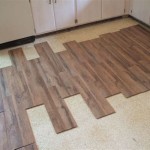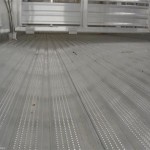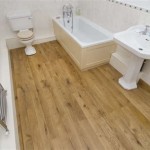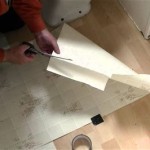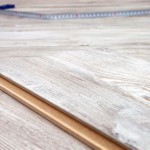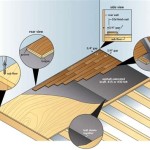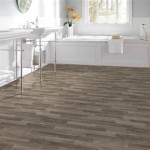Vinyl Plank Flooring for Basement Bathrooms: A Comprehensive Guide
When it comes to choosing flooring for a basement bathroom, vinyl plank flooring stands out as a durable, stylish, and waterproof option. Here's a comprehensive guide to help you understand the essential aspects of vinyl plank flooring for basements, ensuring a successful and long-lasting installation.
Benefits of Vinyl Plank Flooring for Basement Bathrooms
1. Waterproof: Vinyl plank flooring is 100% waterproof, making it an ideal choice for basements prone to moisture and flooding. It can withstand spills, leaks, and even standing water without warping or buckling.
2. Durable: Vinyl plank flooring is highly durable, resisting scratches, dents, and wear from heavy foot traffic. It's also resistant to stains, making it easy to maintain and clean.
3. Versatility: Vinyl plank flooring comes in a wide range of colors, styles, and textures, allowing you to customize your bathroom's look. It can mimic the appearance of natural wood, tile, or stone, providing design flexibility.
Choosing the Right Vinyl Plank Flooring
1. Core Construction: Vinyl plank flooring comes with various core constructions, including waterproof SPC (Stone Plastic Composite) and WPC (Wood Plastic Composite) cores. SPC cores offer superior waterproof performance, while WPC cores provide added warmth and sound absorption.
2. Thickness and Wear Layer: Choose vinyl plank flooring with a thickness of at least 5mm to ensure stability and durability. The wear layer, which protects the design and the core, should be at least 12 mils for high-traffic areas.
Installation Considerations
1. Acclimation: Before installing vinyl plank flooring, acclimate it to the basement's temperature and humidity for at least 24 hours. This will prevent warping or buckling due to expansion and contraction.
2. Subfloor Preparation: Ensure the subfloor is level, dry, and free of debris. For concrete subfloors, use a moisture barrier to prevent moisture from seeping through.
3. Floating or Glue-Down Installation: Vinyl plank flooring can be installed using a floating method (without adhesive) or a glue-down method (using adhesive). The floating method is easier for DIYers, while the glue-down method provides better stability and moisture protection.
Maintenance and Care
Maintaining vinyl plank flooring in basement bathrooms is easy. Regular sweeping or vacuuming will remove dust and dirt. For deeper cleaning, use a damp mop with a mild cleaning solution. Avoid harsh chemicals and abrasive cleaners, as they can damage the flooring.
Conclusion
Vinyl plank flooring is an excellent choice for basement bathrooms due to its exceptional waterproof, durable, and versatile nature. By understanding the essential aspects, choosing the right flooring, and installing it properly, you can enjoy a beautiful, functional, and long-lasting bathroom floor.

Bathroom Flooring Pros And Cons

Can Vinyl Plank Flooring Go In A Bathroom Floorings

Best Flooring In Portland For Bathrooms

20 Beautiful Bathroom Flooring Ideas And Designs In 2024 Vinyl Rustic Wood Floors

Is Vinyl Plank Flooring Waterproof Twenty Oak

Why We Chose Vinyl Plank Flooring For Our New Build Home The Happy Housie

Vinyl Plank Flooring Installation Basement Remodel Before And After

Installing Vinyl Plank Flooring Lifeproof Waterproof Rigid Core Sustain My Craft Habit

Installing Vinyl Plank Flooring Lifeproof Waterproof Rigid Core Sustain My Craft Habit

Upstairs Full Bath
Related Posts

